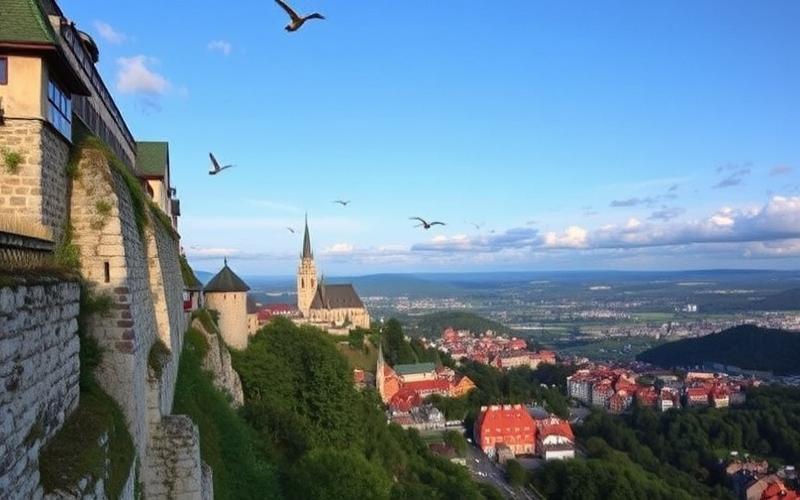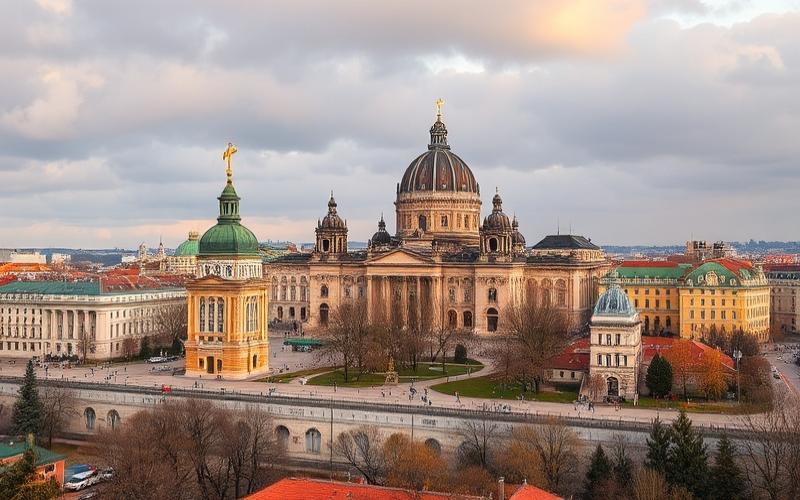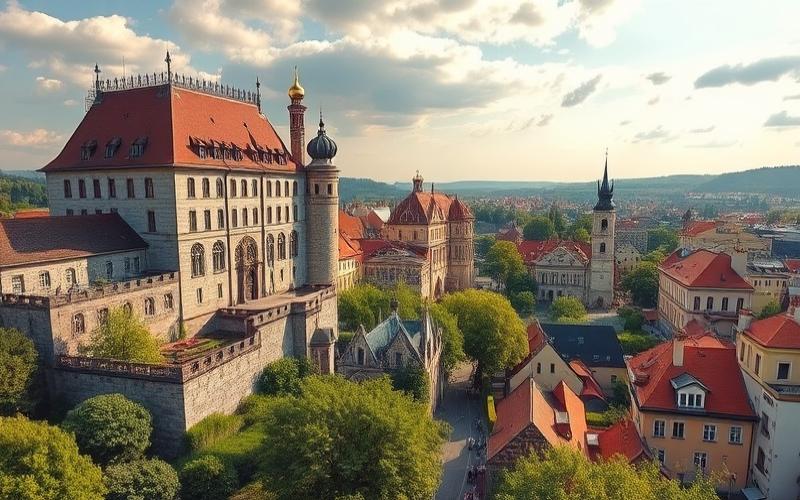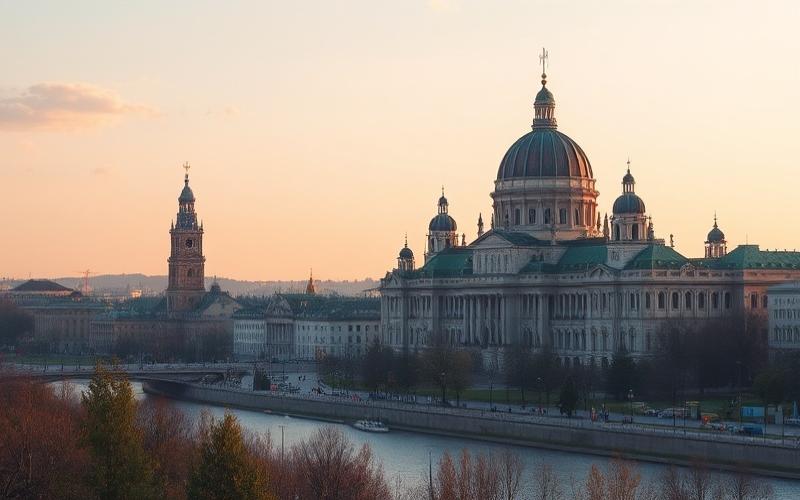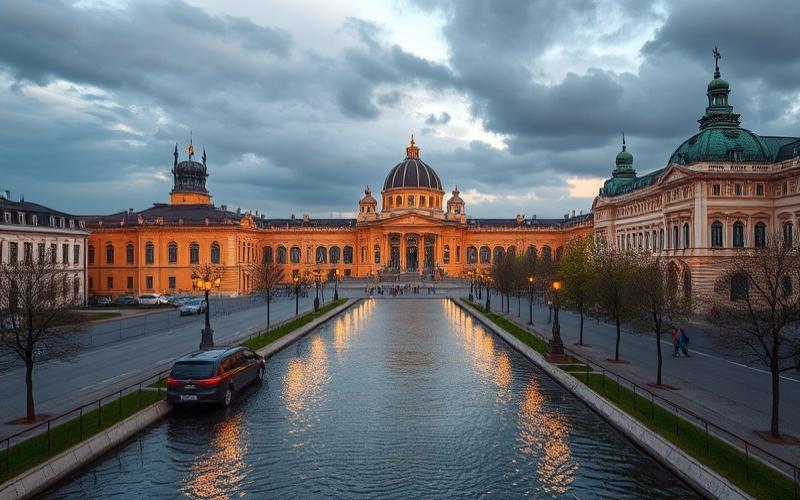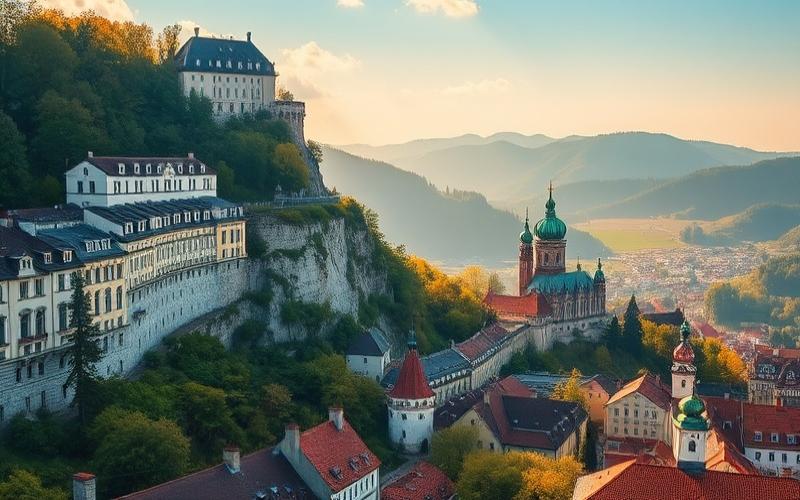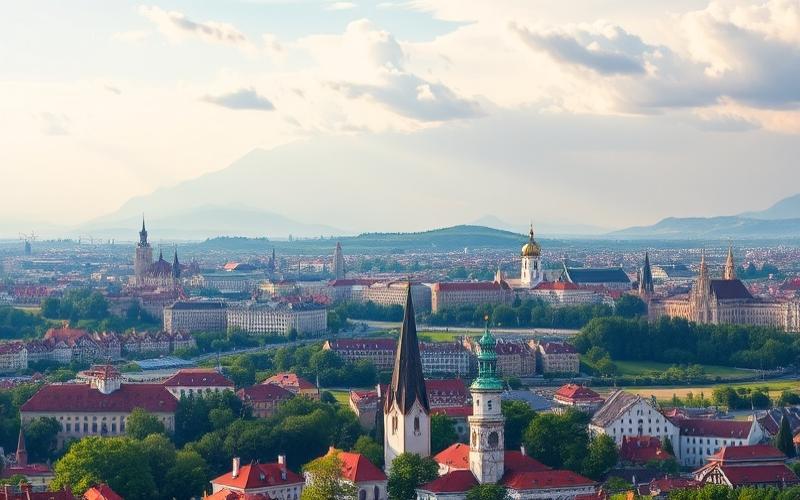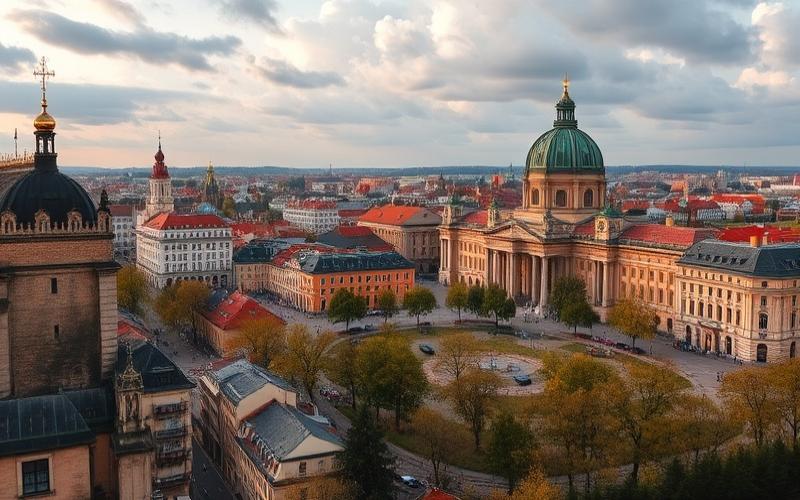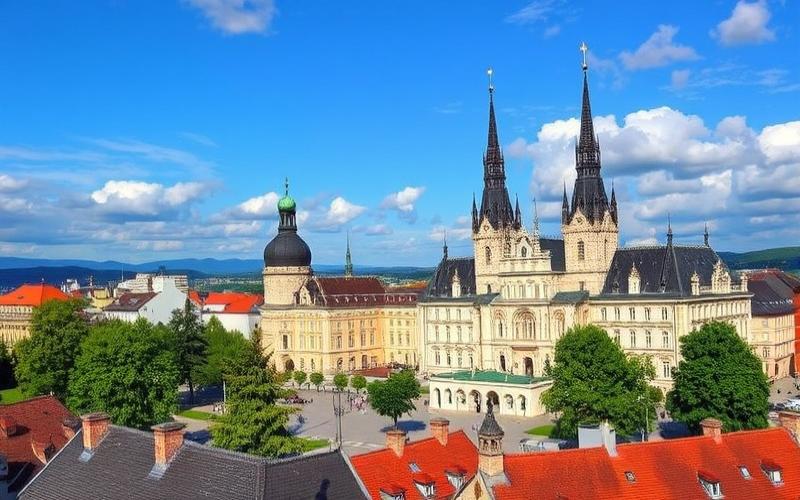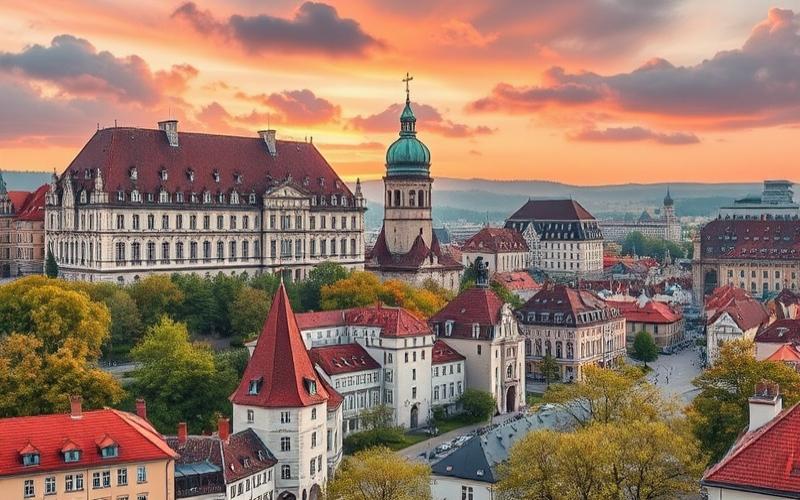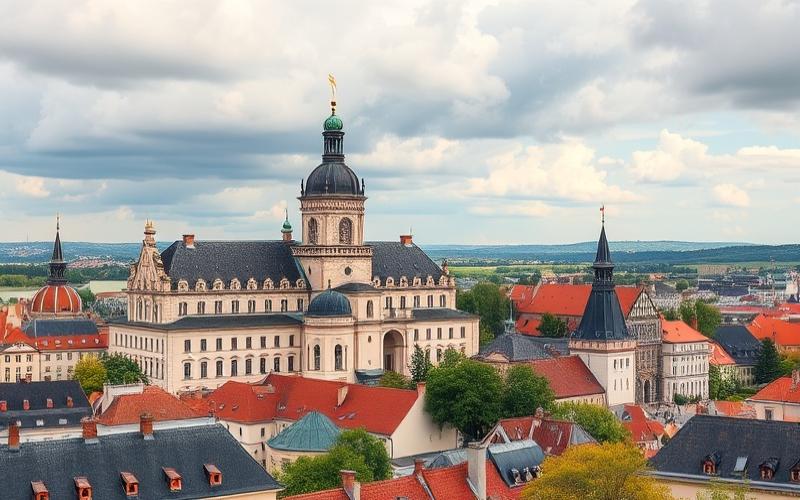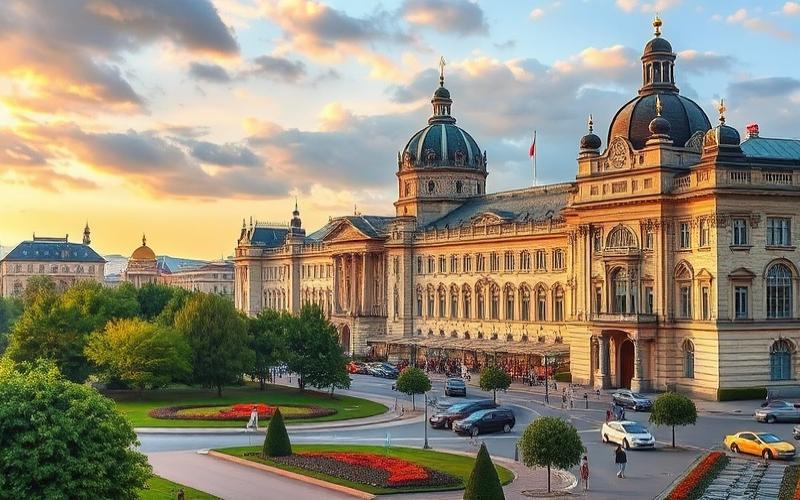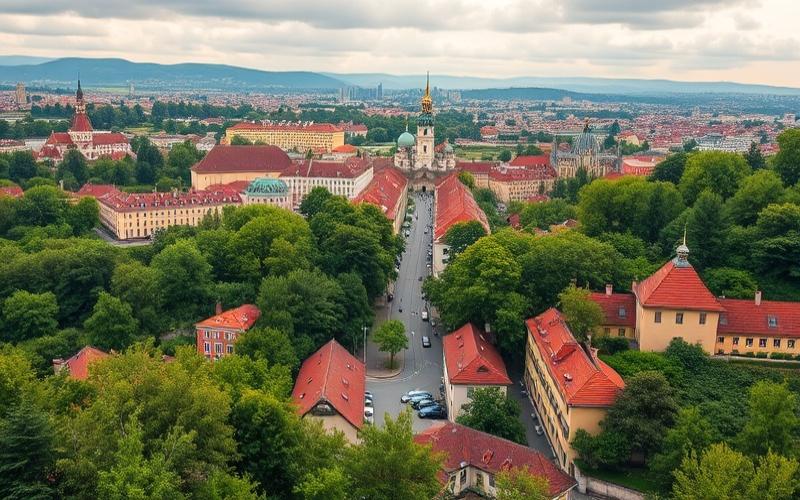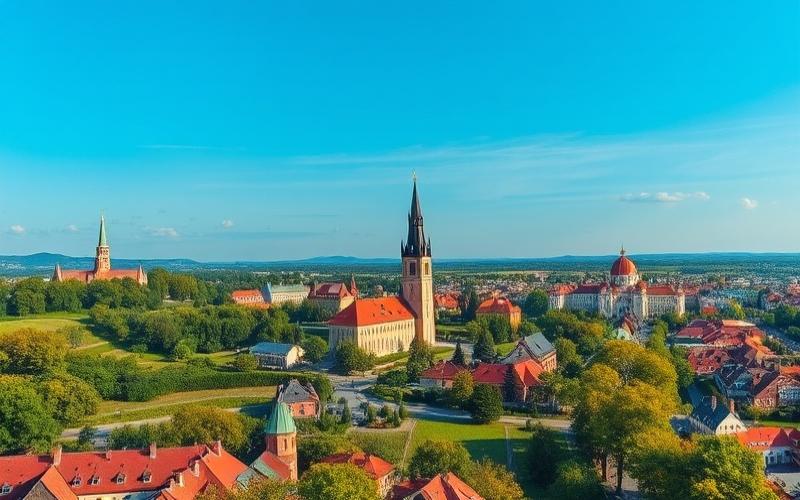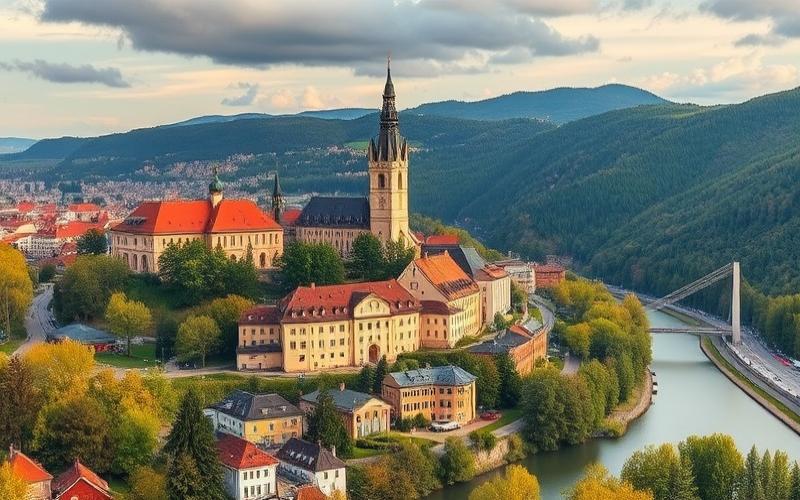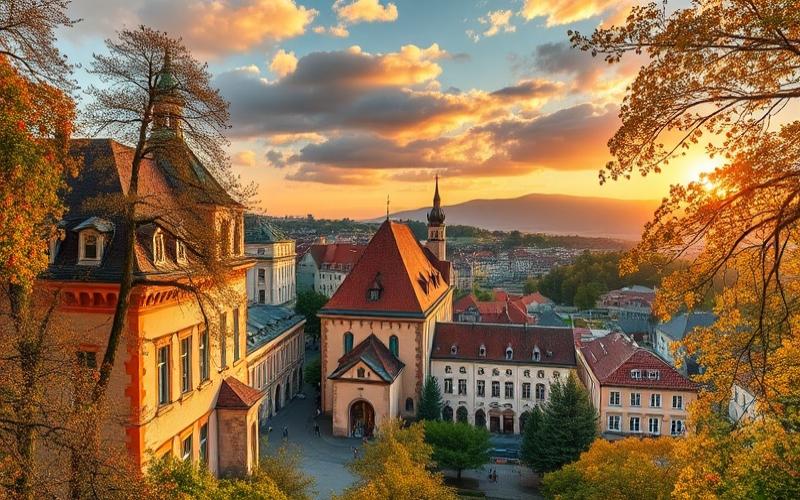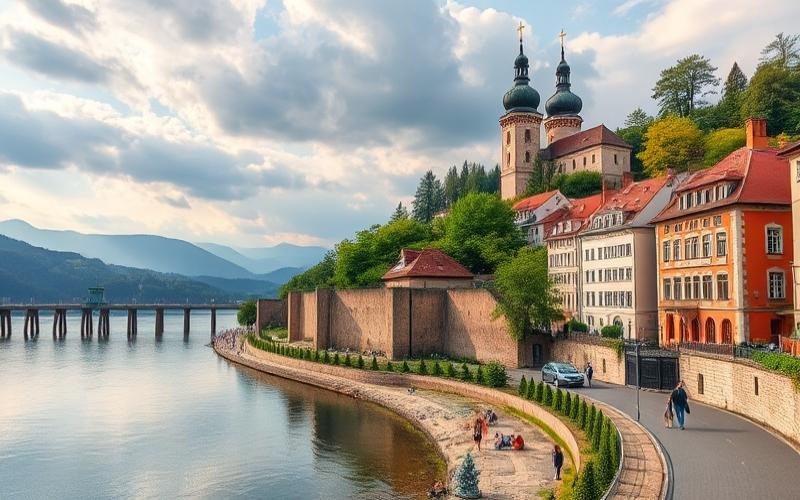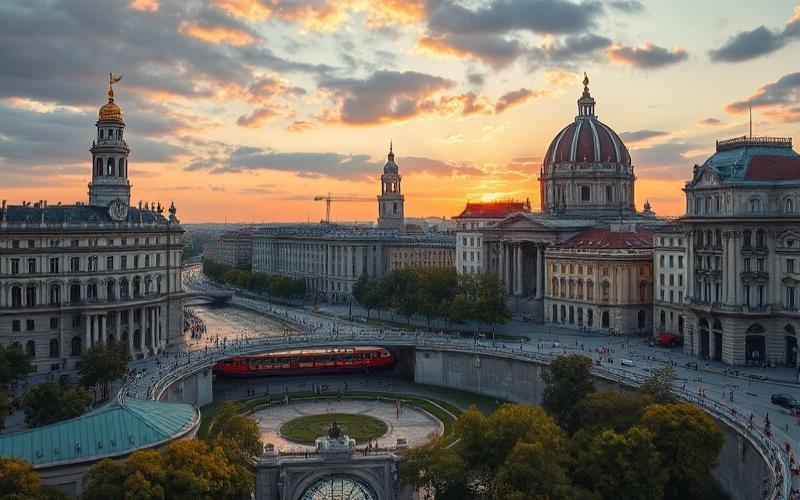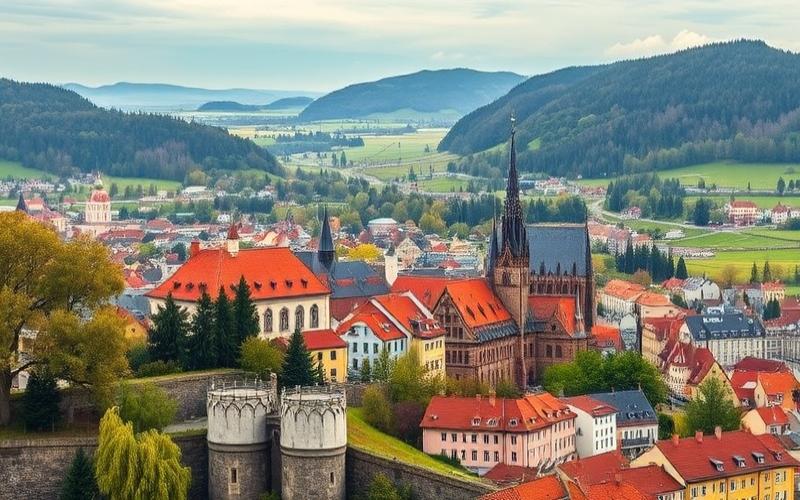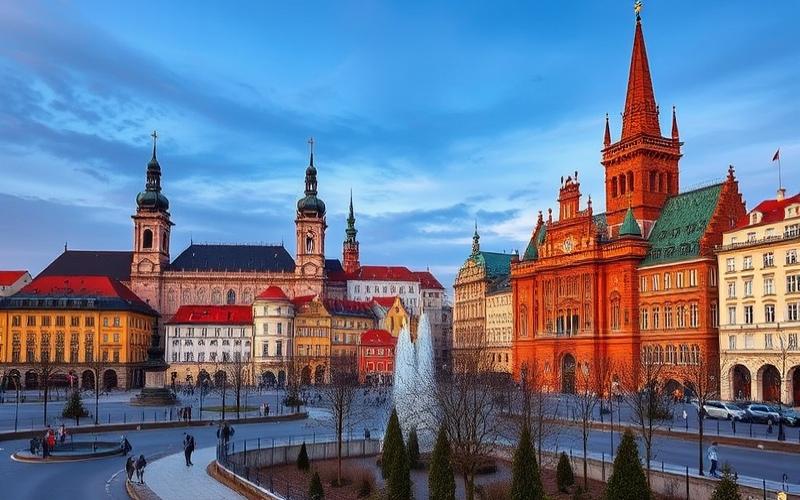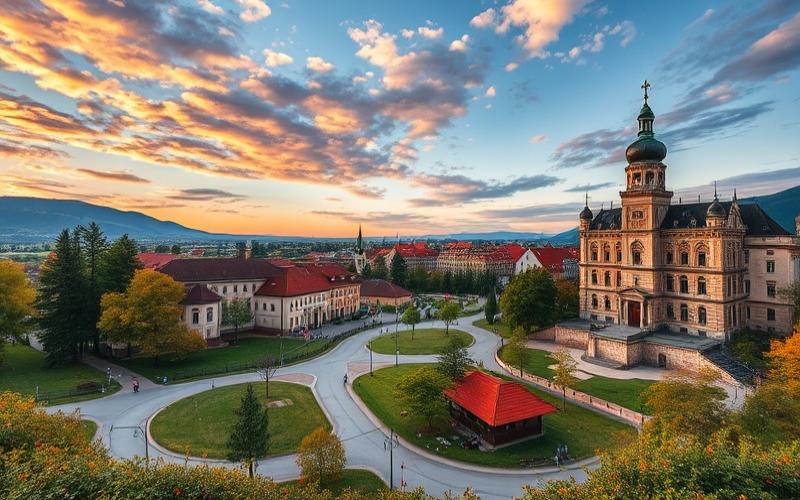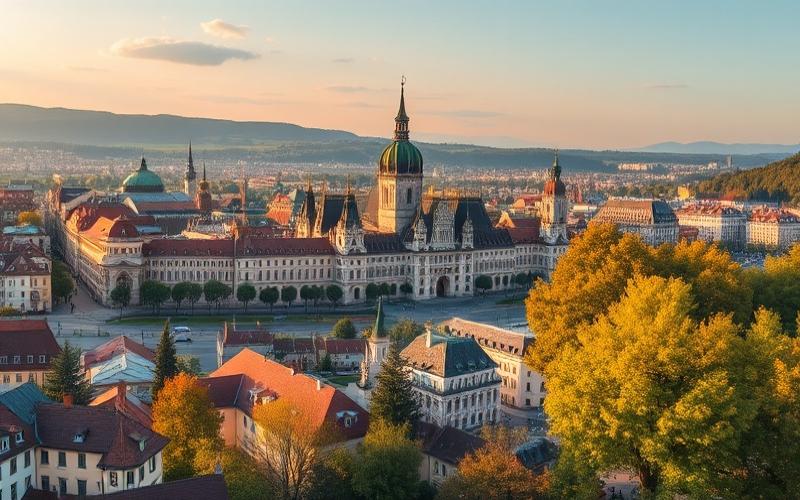
 Published on and written by Cyril Jarnias
Published on and written by Cyril Jarnias
Relocating to Poland is attracting more and more people seeking new opportunities and a radical life change. As a true crossroads between Eastern and Western Europe, this country offers a fascinating blend of tradition and modernity, along with a frequently attractive cost of living.
However, the choice to live in Poland is not without its challenges, such as the need to adapt to a complex language and a sometimes harsh climate. Beyond the linguistic hurdles, expatriates must also get used to distinct cultural norms that influence daily interactions and lifestyle.
While weighing these pros and cons, it’s essential to understand what makes Poland such a unique destination for those seeking an authentic experience abroad.
Economic Opportunities in Poland
Fast-Growing Economic Sectors in Poland
- Technology and Innovation: Poland’s tech sector is experiencing rapid growth, with a strong presence of startups, R&D centers, and companies specializing in IT, cybersecurity, and artificial intelligence.
- Renewable Energy: Poland is heavily investing in solar, wind, and green infrastructure, driven by European funds and energy transition policies.
- Advanced manufacturing and automotive industry.
- Modernized food industry.
- Logistics and distribution (thanks to its central position in Europe).
Incentives for Foreign Investment and Entrepreneurial Opportunities
- European Aid: Over 130 billion euros in European funds allocated for modernization, innovation, and economic resilience.
- Special Economic Zones: Tax exemptions, subsidies, and administrative support for foreign investors.
- Attractive Tax System:
- Competitive corporate tax rate.
- Exemptions and tax credits for innovation and job creation.
- Skilled Workforce:
- High proportion of STEM graduates (science, technology, engineering, mathematics).
- Competitive wage costs compared to Western Europe.
- Dynamic Domestic Market: Robust private consumption and rising purchasing power.
| Sector | Growth | Specific Incentives | Assets for Investors |
|---|---|---|---|
| Technology | Very Strong | R&D subsidies, taxation | Skilled workforce |
| Renewable Energy | Strong | EU funds, guaranteed tariffs | Energy transition |
| Food Industry | Moderate | Modernization, exports | Regional market |
| Industry | Stable | Special Economic Zones | Logistics infrastructure |
Economic Stability and European Role
- Stable GDP growth around 3.4% in 2025, placing Poland among Europe’s growth leaders.
- Political stability strengthened by the return of European aid and prudent management of the public deficit.
- As a key EU member, Poland plays a central role in industrial value chains and European logistics.
- Resilience to geopolitical and economic crises, particularly through diversification of trading partners.
Career Opportunities for Expatriates
- Skilled Jobs in IT, finance, engineering, energy, and consulting.
- Multicultural Environment in major cities like Warsaw, Krakow, and Wroclaw.
- Professional Mobility facilitated by European networks and major international companies based locally.
Potential Challenges
- Language Barrier: Polish remains the dominant language in business and administration; English proficiency is often required but insufficient for some positions.
- Cultural Differences: Management expectations, work rhythms, and communication styles sometimes differ from Western standards.
- Administrative Complexity: Sometimes lengthy procedures for relocation or business creation.
Future Outlook
Poland is establishing itself as a pillar of European growth, driven by digitalization, green innovation, and attractiveness to investors.
Reforms, entrepreneurial dynamism, and macroeconomic stability are expected to overcome challenges and consolidate the country’s position within the EU for the next decade.
Good to Know:
Poland offers opportunities in the technology and renewable energy sectors, with tax incentives for foreign investors and a skilled workforce; however, expatriates may face challenges such as language and cultural differences.
Cultural Challenges to Overcome
The cultural challenges to overcome when relocating to Poland are numerous and affect social habits, professional life, language, and daily expectations. Major cultural differences can be surprising and cause culture shock, but there are effective strategies to facilitate integration.
Major Cultural Differences Between Poland and Other European Countries
| Aspect | France (example) | Poland |
|---|---|---|
| Social Interactions | Cheek kissing and frequent physical contact, quick use of informal “you” | More reserved contacts, handshakes, formal “you” and initial distance, little cheek kissing |
| Workplace Hierarchy | More egalitarian relationships, titles sometimes rarely used | Marked respect for hierarchy, importance of titles (“Pan/Pani” + surname) |
| Punctuality | Relative flexibility | Strict punctuality, delays perceived negatively |
| Religion | Rather secular society | Conservative society, strong influence of the Catholic Church |
| Payment | Card payment sometimes limited for small amounts | Widespread card payment, even for small sums |
| Shopping | Bulk purchases, cash common | Frequent single-item purchases, preference for cash or card |
Linguistic Practices and Daily Cultural Expectations
- The Polish language is predominant, with a low proportion of the population speaking fluent English outside major cities.
- Politeness formulas are essential, especially in initial interactions (use of “Pan” or “Pani”).
- Informal conversations may cover history, sports, or local culture, but it’s best to avoid political or religious topics initially.
Common Culture Shocks for Expatriates
- Interpersonal Communication: Poles may seem distant or cold during initial exchanges. Relational warmth develops gradually, once trust is established.
- Politeness Norms: Respect for rules (pedestrian lights, queues) is strict. Behaviors perceived as “uncivil” may be frowned upon.
- Societal Values: Attachment to traditions, family, and religion is more pronounced than in Western Europe. Debates on social issues may be more conservative.
Practical Tips for Adaptation
- Participate in Local Activities
Taking part in cultural, sports, or community events helps build connections and understand local codes. - Learn Basic Polish
Mastering a few common phrases facilitates daily exchanges and shows respect for the host culture. - Observe and Respect Local Rules
Adapt your behavior in public spaces (punctuality, queuing, traffic rules) to avoid misunderstandings. - Familiarize Yourself with Polish History and Traditions
Learning about national holidays, customs, and the country’s history helps understand the reactions and values of your interlocutors. - Be Patient and Open-Minded
Accept a phase of observation and gradual adaptation, without constantly comparing with your home country.
Living in Poland means accepting to question certain automatic behaviors, opening up to new social codes, and enriching your worldview through a culture that is both close and different.
Good to Know:
Learning a few words of Polish and understanding the importance of respecting elders facilitate integration; in Poland, professional exchanges may be more formal than expected, particularly in terms of hierarchy and punctuality.
The Personal Impact of a Successful Relocation
A successful relocation to Poland can transform personal life through multiple positive dimensions:
Professional Development
- Integration into a dynamic job market: Poland attracts many international companies, offering career opportunities in technology, engineering, or finance sectors.
- Potential for rapid advancement thanks to a growing economy and stimulating entrepreneurial environment.
- Concrete example: A French engineer recruited in Warsaw was able to reach a management position within two years, thanks to internal mobility facilitated by the presence of large international companies.
Cultural Enrichment
- Discovery of a Rich Culture: Polish traditions, local cuisine, festivals, and history promote open-mindedness and curiosity.
- Adaptation to new customs, which develops tolerance and adaptability.
- Anecdote: An expatriate recounts being invited to celebrate St. John’s Night (Noc Świętojańska), an experience that allowed her to build deep connections with her Polish colleagues.
Language Skills
- Learning Polish in daily life, often essential for full integration, even though English is common in major cities.
- Development of the ability to navigate a multilingual environment, which enhances professional trajectory.
- Example: An expatriate testifies that after one year, he can handle administrative procedures and hold everyday conversations in Polish, making him more confident and autonomous.
Positive Changes in Daily Life
Expansion of Social and Professional Network:
- Participation in expatriate meetups, international events, sports clubs, or language discussion groups.
- Building connections with people from diverse cultures, providing moral support and opening new professional perspectives.
Improved Quality of Life:
- Lower cost of living allowing better material comfort (spacious housing, affordable leisure).
- Access to quality healthcare and modern infrastructure.
| Aspect of Daily Life | Positive Change Observed | Example Experienced by an Expatriate |
|---|---|---|
| Social Network | International Encounters | Participation in Francophone and expat meetups in Krakow |
| Leisure Activities | Discovery of New Passions | Skiing in the Tatra Mountains, cultural weekends in Wrocław |
| Family Life | Bilingual Schooling for Children | Children enrolled in an international school in Warsaw |
Personal Well-being and New Perspectives
The sense of security and urban dynamism provide an environment conducive to personal fulfillment.
Discovery of varied landscapes (mountains, lakes, historic cities) promotes an active and balanced life.
An expatriate confides that the diversity of experiences in Poland allowed her to gain perspective on her priorities and adopt a more serene lifestyle.
Relocating to Poland is above all a human and professional adventure that, according to many testimonies, allows for reinvention and broadening of horizons, while enjoying a high quality of life and a context favorable to personal development.
Good to Know:
A successful relocation to Poland can lead to professional progression by exploiting unique opportunities, enrich cultural understanding through local traditions, and improve language skills with daily immersion; several expatriates have also reported an expanded social network and better quality of life.
Disclaimer: The information provided on this website is for informational purposes only and does not constitute financial, legal, or professional advice. We encourage you to consult qualified experts before making any investment, real estate, or expatriation decisions. Although we strive to maintain up-to-date and accurate information, we do not guarantee the completeness, accuracy, or timeliness of the proposed content. As investment and expatriation involve risks, we disclaim any liability for potential losses or damages arising from the use of this site. Your use of this site confirms your acceptance of these terms and your understanding of the associated risks.

